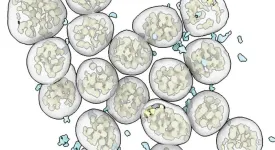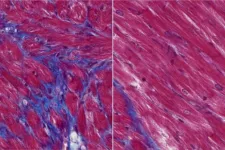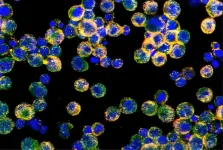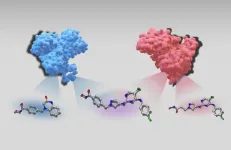Their findings, including preclinical studies in mice, introduce the Adaptive Multi-Epitope Targeting and Avidity-Enhanced (AMETA) Nanobody Platform, a new antibody approach for addressing how viruses like SARS-CoV-2, which causes COVID-19, evolve to evade vaccines and treatments. Details on the results were published October 23 in the journal Cell https://www.cell.com/cell/fulltext/S0092-8674(24)01143-7 [DOI: 10.1016/j.cell.2024.09.043].
Since the start of the COVID-19 pandemic, SARS-CoV-2 has quickly mutated, making many vaccines and treatments less effective. To combat this, Yi Shi, PhD, and his team at Icahn Mount Sinai created AMETA, a versatile platform that uses engineered nanobodies to simultaneously target multiple stable regions of the virus that are less likely to mutate. This multi-targeting strategy, paired with a significant boost in binding strength, provides a more durable and resilient defense against evolving viruses, say the researchers.
“Mutational escape in SARS-CoV-2 has been a persistent challenge, with current vaccines and treatments struggling to keep pace with the virus’s rapid evolution,” says Dr. Shi, lead corresponding author and Associate Professor of Pharmacological Sciences at Icahn Mount Sinai. “Most therapeutic antibodies target a single viral site and lose effectiveness within a year as new variants appear. AMETA, however, is designed to bind to multiple conserved regions of the virus at once, making it much harder for resistance to develop. This platform can potentially be adapted for other fast-mutating pathogens, offering a durable and adaptable approach to managing infectious diseases globally.”
AMETA is designed by attaching specialized nanobodies to a human IgM scaffold, which is a part of the immune system's natural defense structure that helps fight infections. This allows AMETA to display more than 20 nanobodies at once, significantly boosting its ability to bind to the virus by targeting multiple stable regions on its surface, say the investigators. As a result, AMETA is far more effective against advanced variants, offering up to a million times greater potency compared to traditional antibodies that focus on a single target.
Both lab tests and experiments in mice have shown that AMETA constructs are highly effective against a range of SARS-CoV-2 variants, including the heavily mutated Omicron sublineages and even the closely related SARS-CoV virus, according to the investigators. Collaborating with researchers from the University of Oxford and Case Western Reserve University, the team used advanced imaging tools like cryo-electron microscopy and cryotomography to reveal that AMETA neutralizes the virus through several unexpected mechanisms. These include clumping viral particles together, binding to key regions of the spike protein, and disrupting the spike’s structure in ways not seen in other antiviral treatments, preventing the virus from infecting cells.
“Our goal with AMETA is to create a long-lasting platform that overcomes the fast-evolving properties of viral pathogens,” says Adolfo Garcia-Sastre, PhD, co-senior author of the study, Irene and Dr. Arthur M. Fishberg Professor of Medicine, and Director of the Global Health and Emerging Pathogens Institute at Icahn Mount Sinai. “This platform is not just a solution for COVID-19 but could also serve as a framework for combating other rapidly mutating human microbes, like HIV, and for protection from future emerging viruses, including influenza viruses with pandemic potential.”
“AMETA’s flexible design allows it to be quickly adapted to target a diverse range of pathogens, providing an agile and dynamic solution for emerging infections. Our findings represent a major step forward in overcoming mutational escape across viruses and antibiotic-resistant microbes,” adds Dr. Shi.
With its modular structure, AMETA also enables rapid and cost-effective production of new nanobody constructs, making it an ideal candidate for addressing future pandemics, say the investigators.
Drs. Shi and Garcia-Sastre’s teams are now preparing for additional preclinical and potential clinical trials to evaluate AMETA’s therapeutic potential across various diseases.
The paper is titled “Adaptive Multi-Epitope Targeting and Avidity-Enhanced (AMETA) Nanobody Platform: Diverse Mechanisms for Ultrapotent, Durable Antiviral Therapy.”
The remaining authors of the paper, all with Icahn Mount Sinai except where indicated, are Yufei Xiang, MS; Jialu Xu, PhD (University of Oxford, UK); Briana L. Mcgovern, BS; Anna Ranzenigo, PhD; Wei Huang, PhD (Case Western Reserve University, Cleveland); Zhe Sang (Icahn Mount Sinai PhD student); Juan Shen, PhD (University of Oxford, UK); Randy Diaz-tapia (Touro College of Pharmacy PharmD candidate); Ngoc Dung Pham, PhD; Abraham J.P. Teunissen, PhD; M. Luis Rodriguez, MS; Jared Benjamin, MS; Derek J. Taylor, PhD (Case Western Reserve University, Cleveland); Mandy M.T. van Leent, MD/PhD; Kris M. White, PhD; and Peijun Zhang, PhD (University of Oxford, UK and Diamond Light Source, UK).
Please see [DOI: 10.1016/j.cell.2024.09.043] to view more details on the paper and competing interests.
The study was supported by funding from the National Institutes of Health through grants R35GM137905, R01AI163011, and R01HL169500, as well as from CRIPT (Center for Research on Influenza Pathogenesis and Transmission), a Center of Excellence for Influenza Research and Response (CEIRR) funded by NIAID (contract #75N93021C00014). Additional support was provided by the Clinical and Translational Science Awards (CTSA) grant UL1TR004419 from the National Center for Advancing Translational Sciences.
-####-
About the Icahn School of Medicine at Mount Sinai
The Icahn School of Medicine at Mount Sinai is internationally renowned for its outstanding research, educational, and clinical care programs. It is the sole academic partner for the eight- member hospitals* of the Mount Sinai Health System, one of the largest academic health systems in the United States, providing care to a large and diverse patient population.
Ranked 13th nationwide in National Institutes of Health (NIH) funding and among the 99th percentile in research dollars per investigator according to the Association of American Medical Colleges, Icahn Mount Sinai has a talented, productive, and successful faculty. More than 3,000 full-time scientists, educators, and clinicians work within and across 44 academic departments and 36 multidisciplinary institutes, a structure that facilitates tremendous collaboration and synergy. Our emphasis on translational research and therapeutics is evident in such diverse areas as genomics/big data, virology, neuroscience, cardiology, geriatrics, as well as gastrointestinal and liver diseases.
Icahn Mount Sinai offers highly competitive MD, PhD, and Master’s degree programs, with current enrollment of approximately 1,300 students. It has the largest graduate medical education program in the country, with more than 2,000 clinical residents and fellows training throughout the Health System. In addition, more than 550 postdoctoral research fellows are in training within the Health System.
A culture of innovation and discovery permeates every Icahn Mount Sinai program. Mount Sinai’s technology transfer office, one of the largest in the country, partners with faculty and trainees to pursue optimal commercialization of intellectual property to ensure that Mount Sinai discoveries and innovations translate into healthcare products and services that benefit the public.
Icahn Mount Sinai’s commitment to breakthrough science and clinical care is enhanced by academic affiliations that supplement and complement the School’s programs.
Through the Mount Sinai Innovation Partners (MSIP), the Health System facilitates the real-world application and commercialization of medical breakthroughs made at Mount Sinai. Additionally, MSIP develops research partnerships with industry leaders such as Merck & Co., AstraZeneca, Novo Nordisk, and others.
The Icahn School of Medicine at Mount Sinai is located in New York City on the border between the Upper East Side and East Harlem, and classroom teaching takes place on a campus facing Central Park. Icahn Mount Sinai’s location offers many opportunities to interact with and care for diverse communities. Learning extends well beyond the borders of our physical campus, to the eight hospitals of the Mount Sinai Health System, our academic affiliates, and globally.
-------------------------------------------------------
* Mount Sinai Health System member hospitals: The Mount Sinai Hospital; Mount Sinai Beth Israel; Mount Sinai Brooklyn; Mount Sinai Morningside; Mount Sinai Queens; Mount Sinai South Nassau; Mount Sinai West; and New York Eye and Ear Infirmary of Mount Sinai.
END








